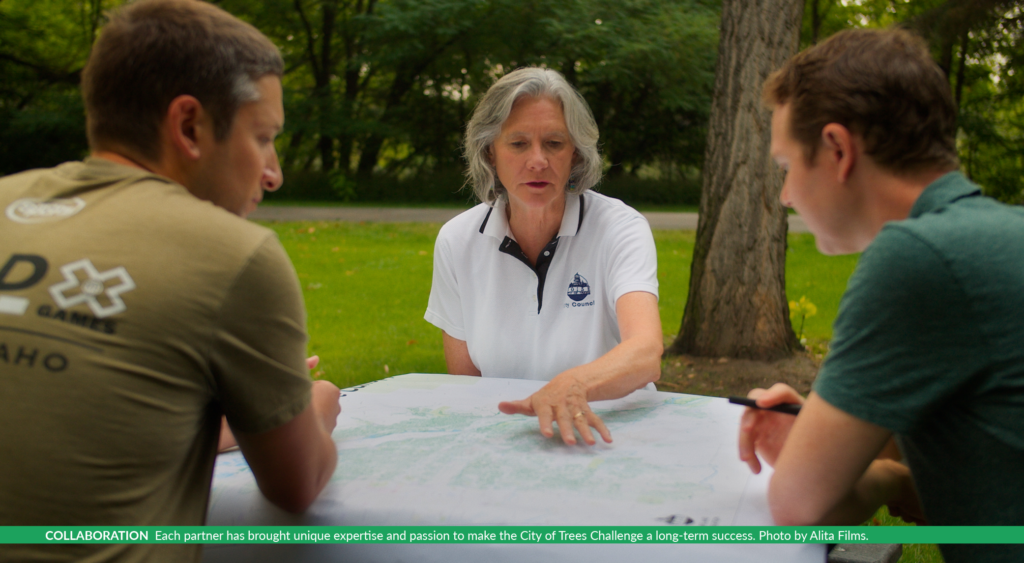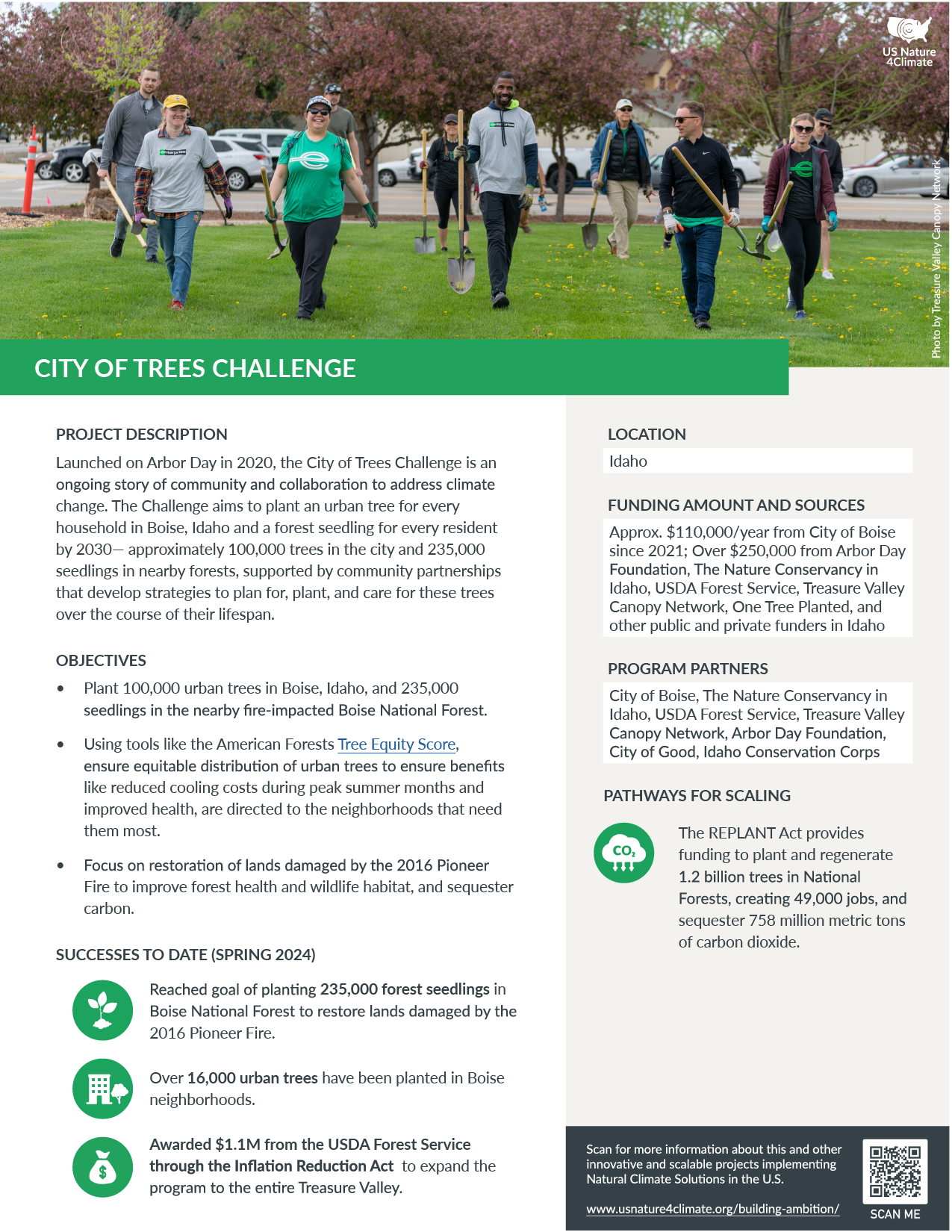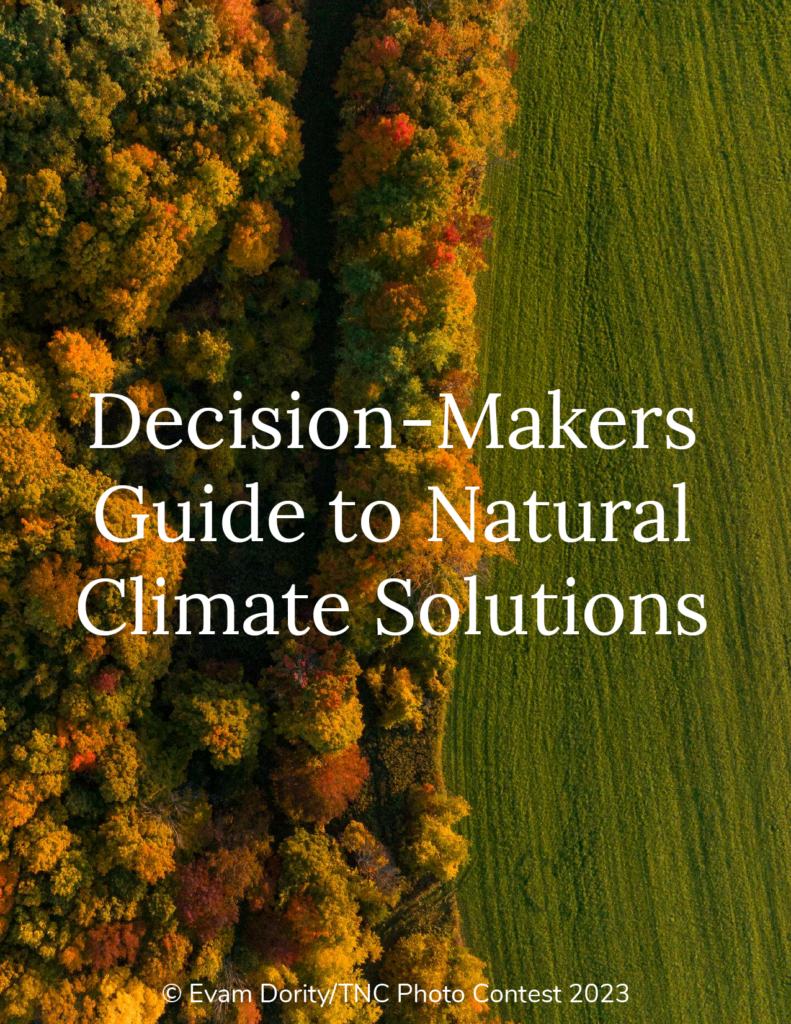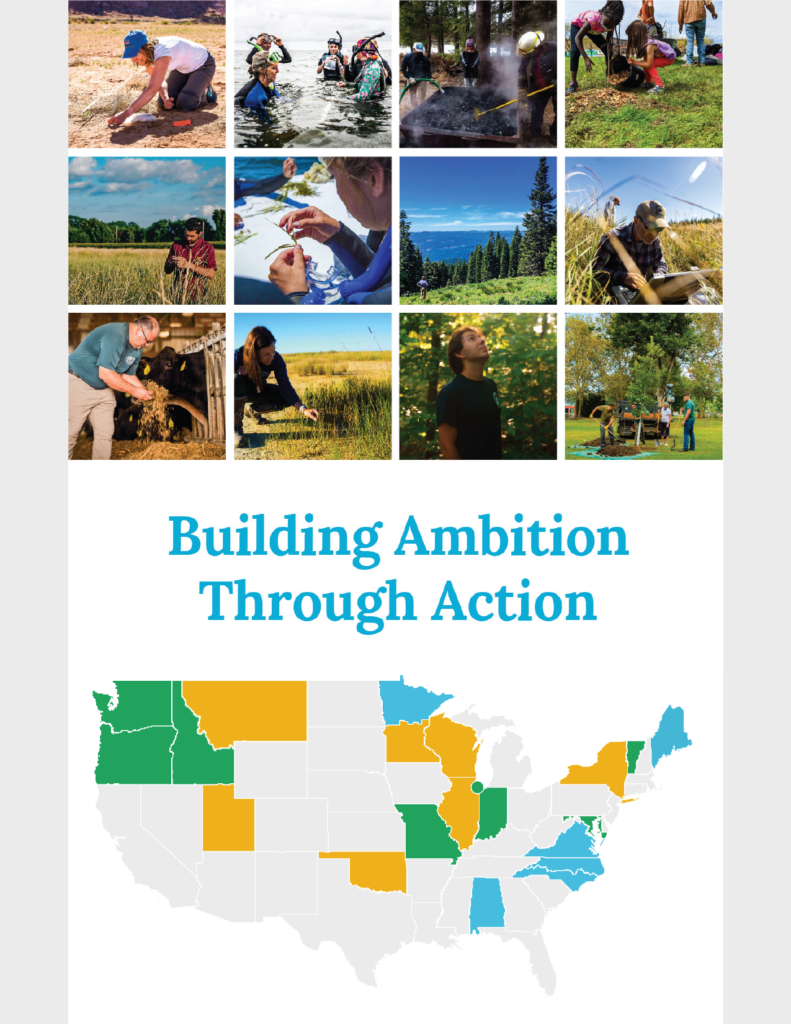Last updated on May 14th, 2024

From filtering the air we breathe to offering shade and serving as habitat for wildlife, trees provide countless benefits to people and nature alike. Scientists have also identified ways trees help address climate change as a part of natural climate solutions through reducing greenhouse gases and sequestering carbon.
“We’ve got to act now if we’re really going to impact climate change. And trees are such an important part of that,” says Elaine Clegg, Boise City Council President, founder of the City of Trees Challenge.
Launched on Arbor Day in 2020, the City of Trees Challenge is an ongoing story of community and collaboration to address climate change. The Challenge aims to plant an urban tree for every household in Boise, Idaho and a forest seedling for every resident by 2030— approximately 100,000 trees in the city and 235,000 seedlings in nearby forests. The Challenge is poised to deliver substantial climate change mitigation benefits. Using the carbon estimator designed by 1t.org US, the project has the potential to sequester 154,124 MTCO2e over a 50-year horizon.
Collaboration is Key
To make this vision reality, a coalition was formed to support the tree-planting effort. Along with the City of Boise, partners include local non-profit Treasure Valley Canopy Network (TVCN), The Nature Conservancy (TNC) in Idaho, and USDA Forest Service Boise National Forest. Each partner has brought unique expertise and passion to make the Challenge a long-term success. To have lasting climate impact, the right trees must be planted in the right place and for the right reason. The collaborative focuses on the best way to plan for, plant, and care for these trees over the course of their lifespan.

“Our partners are committed to long-term and sustained success through our approach to empowering citizen climate action,” says Treasure Valley Canopy Network Executive Director, Lance Davisson. “By working together, we are building a Challenge that offers a better life for all Boiseans.”
In the Forest
Led by The Nature Conservancy in Idaho and USDA Boise National Forest, the effort to plant forest seedlings has been focused on restoration of lands damaged by the 2016 Pioneer Fire. “Along with reducing greenhouse gases and sequestering carbon, as the seedlings grow they will improve wildlife habitat and help the land heal from impacts of the fire,” says Bas Hargrove, Senior Policy Advisor for The Nature Conservancy, who has been on the Challenge planning team since the beginning. “Ensuring these forests recover and grow means they will continue to provide opportunities for current and future generations of Idahoans.”
In the spring of 2024, the Challenge partners reached the goal of planting 235,000 forest seedlings. Species include ponderosa pine and Douglas fir trees which will support improved soil stability and forest health. Arbor Day Foundation has been a key partner and funder of the forest seedling effort, contributing over $250,000 over the course of the Challenge so far.

In the City
In 2020 and 2021, to support the urban tree planting program the City and TVCN hosted community tree distribution events in partnership with Boise Farmers Market. The partnership successfully distributed hundreds of trees to residents and raised awareness about the Challenge. In 2022, the urban program evolved into the Boise Tree Captains, based on a model developed by Root Nashville in Tennessee. To date, over 50 Boise residents were recruited and trained in basic tree care and to identify areas within their own neighborhoods that could use more trees. “My job as a tree captain is looking for neighborhoods that don’t have as many trees, knocking on doors and talking to people about their yard,” says Tree Captain Cameron Weller. “I work with the (City of Boise) and the residents to create a plan that will help their tree survive and look great.”
So far, the Captains have located homes for over 300 trees in neighborhoods across Boise that will benefit from increased tree canopy to reduce urban heat and improve health and wellbeing of these neighborhoods.

More than Carbon
Urban forests provide many benefits for communities besides carbon sequestration – reduced urban heat and lower peak season summer energy bills, improved quality of life, resilience to storms, jobs, and air quality benefits. In Boise, maintaining the urban tree canopy supports thousands of jobs and adds over $600 million into the economy. Additionally, Boise’s trees provide an estimated $500,000 in stormwater benefit, $300,000 in reduced summer energy use and $3.3 million in air quality benefits each year, benefitting the health of the community and saving both residents and the city significant money.
The Challenge is working to ensure equitable distribution of these benefits. Across the country, with few exceptions, trees are more likely to be in wealthier neighborhoods. By using the American Forests Tree Equity Score tool, partners and Boise Tree Captains are able to identify neighborhoods within the city that need more trees and then focus attention on those areas. However, to address tree equity and empower climate action, relationship building with impacted communities is needed. The Boise Tree Captain program begins to address this, but it is an area of growth and learning.
A National Model for Tree Planting
The Challenge’s combination of urban and rural tree planting provides a model for scaling community-driven climate action nationwide. American Forests and 1t.org US are already working on a platform to help other communities take this approach. New federal funding to help cities plant more trees is on the way – the recently passed Inflation Reduction Act provides $1.5 billion for urban and community forest programs. In addition, funds made available through the REPLANT Act and Infrastructure law can support post-fire recovery and climate change mitigation in wildland settings, all components of the overall vision for how the City of Trees Challenge improves the health of urban forests and city residents while also improving the healthy of the region’s forests.
In 2023, TVCN was awarded $1.1M from the USDA Forest Service through the Inflation Reduction Act to expand the City of Trees Challenge program to the entire Treasure Valley.
“I hope Boise can model for other cities how to work with nature in the face of climate change to create a great place to live with access to the natural world that we all thrive in,” says Elaine Clegg.

Interested in bringing the Challenge model to your city? Email director@tvcanopy.net.
Related Resources

Download project fact sheet
(includes pathways for scaling)

Explore our Decision-Makers Guide to Natural Climate Solutions to better understand the science behind these strategies and get tools to implement them.

